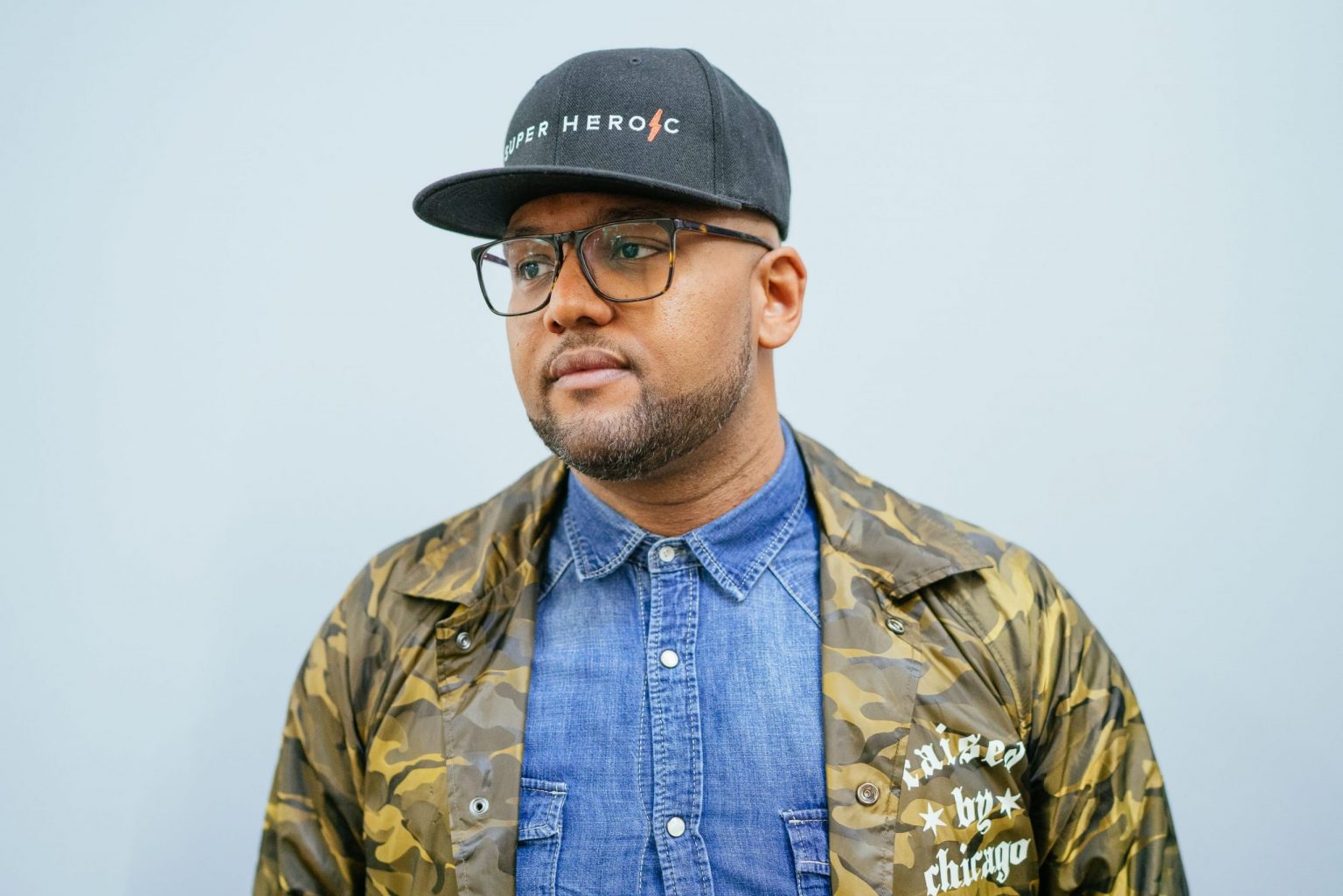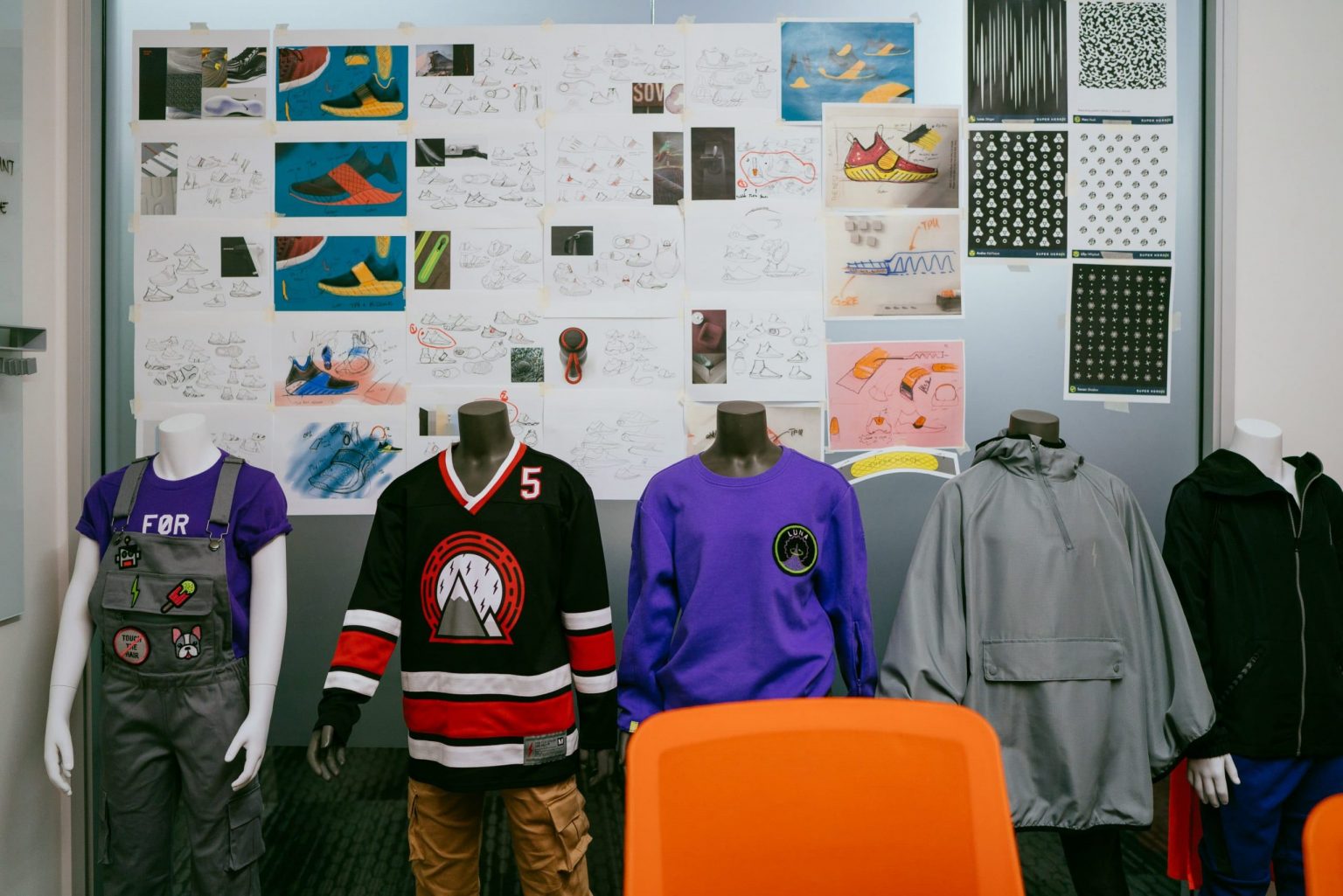In the modern day, where relevance is almost directly correlated with social media presence, we are encouraged to categorize ourselves. We are one thing and one thing only. This however does not portray the whole picture for a creative. Creativity is not one single thing, it is a lifetime of lessons learned, failures and triumphs—a complex construction of seemingly unconnected experiences.
On Wednesday, November 7th, MAEKAN and Imprint come together to bring you the Unexpected Connections Conference. Throughout the day, speakers from all sides of creative culture will explore the ways in which their everyday life intersects with their professions.
To find out more information, including who will be speaking at the conference and how to get your tickets, head over to http://ucc.archive.maekan.com
Jason Mayden is somebody that has played a huge role in the influence of youth and sneaker culture. But his humility won’t always let him show it. The former Design Director at Jordan Brand spent the formative years of his career helping shape the post-Michael Jordan era of one of sportswear’s most important brands. Mayden’s interests and desire for challenge eventually led him to Silicon Valley and subsequently, the launch of his own brand focused on “play” for children. Super Heroic is unlike any other brand on the market. It emphasizes a specific type of experience for children, without the constraints of traditional structures. But beyond his desire to reshape the youth experience, he’s also heavily invested in you. Yes, you, the person reading this. Mayden has continually presented himself in the community, as somebody committed to providing direction and courage to seek out your wildest dreams. Because without hopes, dreams, and imaginations, our current outcomes become our harshest realities.

“Imagination was a form of escapism that allowed me to travel to other worlds and to other realms and see the world through the eyes of people that I never would have thought to be me and using my imagination to become the most exemplary version of myself.”
Eugene: How’s it going man?
Jason: Yeah man, doing fundraising and just evangelizing the brand and everything, entrepreneurship is a full-contact sport. You got to get out on the field and be ready to perform.
Eugene: No doubt, I can definitely subscribe to that. Naturally what you do now seems to be a direct extension of your passions and interests. Growing up, what would you say were some of your earliest passions?
Jason: Growing up my earliest passions were really around self-expression and self-identification. It came at a time when I didn’t have the look of a person that would be regarded as someone that was important, and that’s something significant regarding how children see themselves. If you don’t feel like you look like your peers, you don’t have the clothes or the shoes, we start to look for other things that you can project into the world as your worth. So for me, it was: ‘Hey I may not have the latest and greatest gear, but I can draw really well.’ I know a lot about comic books, so I figured out ways to increase my social clout, get more ‘crowd tokens’ by simply allowing the other people to see me fully display my interest in the arts. Imagination was a form of escapism that allowed me to travel to other worlds and to other realms and see the world through the eyes of people that I never would have thought to be me and using my imagination to become the most exemplary version of myself. That’s a lot of what I would say my core interest revolved around very early on. It was the desire to use creativity as a form of escapism.
Eugene: So do you think that in general that that’s something that has applied now as well? Has your interest in creativity remain unchanged from your youth?
Jason: Yeah, 100%, it’s really the same. I think about what I went through as a kid, and I look at the world that children are living in today, without imagination how will they be able to dream of a better tomorrow? Because the reality is so ever-present they can’t escape it, social media never lets you be removed from the world. Now more than ever there needs to be an application and a sheer societal shift toward the desire to protect imagination. Because of this whole concept of: ‘Oh man, that’s not reality.’ The more we tell kids that, then the worst possible outcome becomes their reality and we atrophy their hope, and we bias them towards failure versus evangelizing or catalyzing them towards success and innovation.


“I look at the world that children are living in today, without imagination how will they be able to dream of a better tomorrow?”
Eugene: Do you think there’s an issue going on now where people have been confused about what is passion? Meaning we sometimes get confused between our own passion versus what we validate on social media?
Jason: People have confused passion with acceptance. People look to what’s acceptable, and then they bias in that direction. The thing about passion is that it’s important to you, it’s not a version of somebody else’s truth. Social media has created a very narrow range of archetypal outcomes for people from inner cities or people who like music. So, if you don’t subscribe or fit within this neatly packaged box that you see on your phone, you don’t really have the opportunity to stand out. You feel like if I don’t join into the conversation, then no one’s going to listen to me. I believe we’re in this weird age of passion being replaced for acceptability and acceptability being a version of someone else’s passion and it’s derivative. When you get to the source of a lot of movements, these people don’t care what people think about it. So I think to your question about identifying passion, you have to first accept who you are, in any capacity. Because if you don’t love you, then don’t go to the world for that love, it’s never going to come because the world is fickle and it moves on, and it changes its mind, but you should never change your mind about who you are. You should love yourself unapologetically and do what makes you feel like you’re presenting something that’s truthful, honest, and valuable to the world through your lane.
Eugene: So it really comes down to how we view ourselves.
Jason: That to me is how you identify your passion because when you do love something you’ve got to be willing to accept all the hate and keep doing it even when it’s not working because it fills your soul. I’m living proof of that, I’m doing something right now that is exceptionally hard. Even in my darkest and hardest days I keep going because I refuse to quit because I care so deeply, it’s ingrained in my DNA. This is my purpose. This is exactly why I get up in the morning, so I’m passionate because I know I’m working within the purpose and my spiritual gift. I could care less if I get a ‘like’ on Instagram.
Eugene: You’re among a special breed that has found an inherent passion that has translated into your professional life. What are things outside of that, that you pursue but don’t necessarily result in a paycheck? How does that factor into the bigger picture?
Jason: Servitude. I don’t get paid to go out and serve in a community. I don’t get paid to spend time mentoring people, I don’t get paid to spend time praying for people. Ninety-nine percent of my job at Super Heroic is an unpaid role. I only get paid based on the fact that we sell products, but 99% of what is evangelizing the mission of the brand. There’s no compensation that comes from that. The times that I’m not on Instagram and I’m in the inner city speaking with children who’ve suffered severe trauma or who’ve experienced tremendous loss, that to me is not about a paycheck. It’s about receiving a spiritual lift as the gift of service. So the thing that invigorates me, Eugene, it has nothing to do with business. I’m in the business of blessing people through service and if that shows up in my company, great. If that shows up in my attitude, great. If it shows up in my willingness to listen, great. The monetary stuff, if it comes, wonderful. If it doesn’t, wonderful.
“If you don’t love you then don’t go to the world for that love, it’s never going to come because the world is fickle and it moves on, and it changes its mind, but you should never change your mind about who you are.”

Eugene: How do you balance that with personal happiness on the basis you give yourself to so many other causes?
Jason: My joy is not conditional. I’m the same Jason with plenty, and I’m the same Jason with nothing because at the end of the day I understand that my life is not for me, it’s for me to be a person that serves the greater good and helps other people. So, once I’ve accepted that as my truth—a life of self-sacrifice and moving my own desires and focusing more on the public benefit of others—I became free and I became more willing to go out and just find joy in the simplest interactions. So the payment I receive is peace of mind. When I go to sleep at night, I know that I feel good about who I am, and I can feel good about what my children are being taught and I can feel good about how I make the people around me feel and that to me is the greatest currency ever, unconditional love and peace of mind.
Eugene: You obviously have identified something that’s much larger than you. It’s very selfless. Do you think that that sort of selflessness is something that is unique to you?
Jason: I think most people have that ability, they simply forgot it. You don’t need to find something that’s inherent to who you are, it’s called a soul. That’s it. We’re all born with a soul, and that soul is connected to a higher power, regardless of who you pray to or if you don’t believe at all, the energy that flows through our bodies relates to something bigger than us. We just forget it because we get connected to the objects, we get connected to the social acceptance, we get connected to the titles and the labels. We don’t get connected to each other’s energy. I just never lost sight of that because I had so many near death experiences in my life that I stopped valuing my life in the way that people value it, they are afraid of living because they don’t want to die. That’s the whole point, but when you’re faced with death at the age of seven, you no longer are bound to that fear and that social contract of doing just enough to be safe to live long. You want to make sure that the 24 hours you’re given is meaningful, so I do not waste any minutes with my life because I know that I’m living on borrowed time, we’re all living on borrowed time. I never lost sight of the fact that what I’m doing is driven through my desire to want to connect with people from all walks of life because we do share similar energy because we are all alive at the same time and we all have somebody that loves us and cares for us.
Eugene: What about those who don’t have the same guiding principles or guiding light as you?
Jason: I think a lot of the people today who feel a little bit… I don’t want to say lost, but I would say uncertain and unqualified, or unredeemed and uncalled. That’s a lie, that’s a trick of the world, and you have to really dig in and ask yourself. You’re not born on accident, everyone is brought forth for a reason. Now whether did the reason is this massive publicly-facing reason, or if it’s behind-the-scenes, we’re all a single thread in the fabric of existence. So many people are caught up on being the actual big piece, this tapestry instead of realizing it takes a single thread to build that tapestry. I’m just doing my part. I’m cool with being a thread. I’m really cool with that. I don’t need to be the whole garment.
“So many people are caught up on being the actual big piece, this tapestry instead of realizing it takes a single thread to build that tapestry. I’m just doing my part. I’m cool with being a thread. I’m really cool with that. I don’t need to be the whole garment.”































